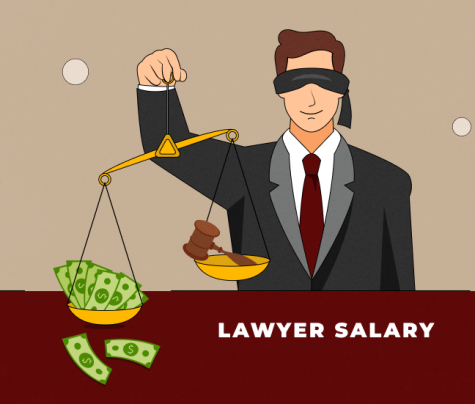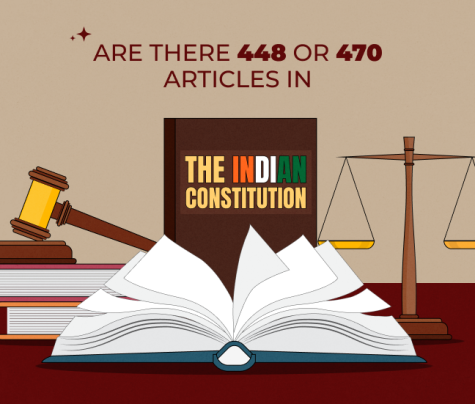What is a Cease and Desist Order? A Beginner’s Guide
A Cease and Desist Order is a legal directive issued by using an able authority, normally a court or government corporation, commanding an individual or entity to halt a detailed informal agreement or action, which might be deemed unlawful or infringing upon the rights of another party. This order serves as a formal note on the spot termination of the identified actions and can be observed via illicit outcomes if neglected. In this guide, we will be discussing the legal jargon, cease and desist order, along with its penalties and defenses.
What is a Cease and Desist Order?

A Cease and Desist Order is a legal instrument issued through a court or administrative establishment directing an individual or entity to halt certain activities which might be supposed to be unlawful or infringing upon the rights of some parties. It serves as a proper be aware worrying on the spot cessation of the identified actions and can deliver legal actions if ignored.
In legal contexts, Cease and Desist Orders are frequently appointed in several areas which encompass intellectual property regulation, customer protection, employment disputes, and securities regulation. These orders are designed to save your ongoing damage, protect rights, and preserve order in the legal framework. They generally incorporate specific directives outlining the prohibited conduct, legal foundation, effects of non-compliance, and the timeline for cessation.
For example, inside the realm of intellectual assets regulation, Cease and Desist Orders can be issued to people or groups accused of trademark infringement, copyright violation, or patent infringement. Such orders are grounded in statutory provisions and case regulation that shield the one of a kind rights of highbrow belongings proprietors. For example, beneath the Lanham Act, which governs trademark law within the United States, courts have the authority to trouble injunctions and Cease and Desist Orders to save you trademark infringement and unfair competition (15 U.S. Code § 1116).
Similarly, within the context of consumer protection, regulatory companies in conjunction with the Federal Trade Commission (FTC) might also additionally hassle Cease and Desist Orders to agencies engaged in deceptive or unfair practices. These orders are rooted in customer protection legal indicators and actions aimed toward safeguarding clients from fraudulent or deceptive conduct. Section 5 of the Federal Trade Commission Act empowers the FTC to give up and desist orders towards unfair or misleading acts or practices (15 U.S. Code § 45).
What is a Cease and Desist Letter?

A cease and desist letter is not legally binding and reflects the opinion of an individual, normally a lawyer. A cease and desist letter may also serve to warn an offender that legal movement might be taken if they do not prevent the action. The offender is typically given a fixed time frame—usually 10 to 15 days—to end and desist.
A cease and desist letter should observe legal guidelines in the jurisdiction in which it is sent. In addition, the American Bar Association (ABA) Model Rules of Professional Conduct dictate that a legal professional & shall now not gift, take part in supplying or threaten to offer a criminal charge entirely to reap an advantage in a civil matter. Such a risk has no prison importance apart from being a negotiation tactic.
Cease and desist letters regularly require a signature upon delivery. The letter is normally dispatched with a return receipt requested, although this is not required.
Legal Considerations for a Cease and Desist Letter

An attorney is certain with the aid of the ABA Model Rules of Professional Conduct. These policies prevent lawyers from presenting—or participating in—threats or issuing criminal fees to benefit a bonus in a civil case.
Three preconditions commonly should be met earlier, while a lawyer can also improve the possibility of expenses without violating the professional conduct code.
The fees ought to be related to the civil regulations
Citing an offender with a charge that is unrelated to the civil claim in order to get a higher compensation within the civil case can be a misleading tactic that is frowned upon within the legal system. A lawyer who breaches trust by maliciously misrepresenting a case or creating a fake claim could be engaging in misconduct.
The lawyer should believe the Civil claim and offense expenses are based totally on merit in terms of the regulation
A declare this is unfounded and without advantage can reveal the lawyer to an allegation of embarrassment by using the person who acquired the cease and desist letter. The legal professional can be found to have filed a frivolous declaration in violation of the Model Rules of Professional Conduct.
A Civil lawyer is ought not to attempt to exert or improperly influence the criminal manner
A legal professional who attempts to influence the legal outcome following a cease and desist letter via illegitimate means, together with bias, coercion, or fraud, can be observed to have tampered with the criminal intention. For instance, a lawyer might not inform a recipient that criminal expenses may be avoided if the recipient meets the client’s needs as spelled out in the letter. In legal expressions, this may suggest that the attorney has some authority over court proceedings, a contravention of the ABA Model Rules of Professional Conduct.
Moreover, anyone can send a cease and desist letter. However, an attorney can advise complainants on whether their rights have been violated and if they have legal and admirable rights to ship a cease and desist letter. The legal professional should also be aware of the ideal legal language to use.
Illustrations of Cease and Desist Order
There are four unlawful actions that are most often addressed with cease and desist orders or letters: misuse of intellectual possessions, harassment, defamation and libel, and settlement violations, together with unfair labor practices or unfair compensation. Remember that, at the same time as anybody can write a cease and desist letter, a cease and desist court or other entity should issue an order within the legal realm to accomplish that. If you are served with a cease and desist order, study it cautiously—with legal recommendation, if vital—to decide who dispatched it and what legal penalties and validity it has.
Intellectual Property
Anyone who copies a work under a trademark, copyright, or license without permission may receive a cease and desist order. For example, a web publisher who steals content or images from another website without providing the right to republish the content risks and incurs copyright infringement penalties. If the charges reach the court, the waiver is proof that the recipient knew of the alleged misconduct.
Harassment
A person who repeatedly pesters or threatens every other individual can be dispatched a cease and desist order as a caution. For example, in keeping with the Fair Debt Collections Practices Act (FDCAPA), third-party debt collectors cannot harass, oppress, or abuse anyone if they want to acquire a debt that is owed.
A debt collector who continuously calls a debtor can be dispatched a cease and desist letter. In greater serious cases a cease and desist order can be sought and issued. A restraining order is a special type of cease and desist order used in cases of stalking or intimidation. The definition and guidelines concerning stalking range by states across the US.
Character Defamation and Libel
It is unlawful to make untruthful comments about every other person that would be dangerous to their recognition and enterprise, whether in print or verbally. An individual who engages in such behavior must not be amazed to acquire a cease and desist order. For instance, a person who spreads a fake rumor that a fast-food chain’s burgers are usually made from insects can be issued a cease and desist order. Moreover, seeing that their lies may additionally harm the business.
Contract Violations
A party violating the phrases of a contract can be issued a cease and desist order. In the hedge fund sector, for instance, employees are usually required to sign a non-compete agreement. This method is used when an employee leaves the business enterprise; they can’t take proprietary substances or customers of the hedge fund with them.
If an employee leaves for a brand new task and solicits clients from the previous employer, the preceding corporation can send a cease and desist order, warning the worker of a capability penalty for breaching a contract.
What happens when you receive a cease and desist order?

If you or your company receives a cease and desist order, you have to respond to it in a prompt and appropriate manner. Always remember that anything that happens and your response to the same can be used as evidence that might be used against you in litigation.
If you are working with a lawyer, your response to the order might be considered a part of the settlement negotiation. Moreover, it will become inadmissible in a court of law.
Here are steps you might consider taking when receiving a cease and desist order:
Review the cease and desist order carefully
You have to effectively understand the claims that are being made against you or your business. Moreover, identify the sender’s information that includes their legal representation.
Consult with a lawyer as soon as possible
It is always advised that you consult with a lawyer who is experienced in torts to have a better understanding of the cease and desist order. You have to make sure that you provide your lawyer with all required documents and information that are associated with the case. It will allow them to effectively determine the seriousness of the case and proceed to the next steps in accordance with that.
Choose a course of action
Your lawyer will have to reach into a negotiation with the opposing party to bring a resolution. The best option that can be availed during such a situation is mediation. Mediation will be helpful as it will allow you to settle the case outside the court, which is more time consuming.
On the other hand, it is also beneficial as it will allow you to have a better say in the components of the order with the opposing party without breaking any compliance matters.
Moreover, if you believe that the claims against your business are false, your lawyer will suggest you file a counterclaim to protect your interests.
Seek insurance coverage
You need to consult with your insurance provider to check whether your business liability insurance covers the claims that are mentioned within the received cease and desist order.
Prepare for litigation
The final step you must take if you have received a cease and desist order is to prepare for litigation. Litigation will be the last resort when attempting to negotiate or mitigate failure in the first place.
You have to make sure you hire an experienced litigation attorney who’ll assist you on the legal front in providing the compensation you deserve.
FAQs
Here are some frequently asked questions related to cease and desist orders mentioned below:
A cease and desist order are a directive by an administrative authority that requires a certain practice to be stopped. It is mainly used within labor & employment law, IP law, and other areas of law.
Most lawyers in the US will charge between $750 to $1200 for drafting a cease and desist letter and ship to the address you have asked them to.
The term cease and desist order is primarily used by lawyers. This is a legal term that is used for ordering someone to stop certain actions that are harmful to a certain entity.
Conclusion
Now you have a better idea related to the legal order named cease and desist order. This order is particularly sent to an entity that aims to defame or harm the other party physically, emotionally, or financially. Make sure you have an experienced civil lawyer by your side to take appropriate legal advice to deal with such instances.











2 Reply
What happens if you appear in court without a lawyer
March 26, 2024 at 10:49 am
[…] What is a Cease and Desist Order? […]
Replyworldcuppoints
February 24, 2024 at 11:45 am
“Excellent!”
Reply